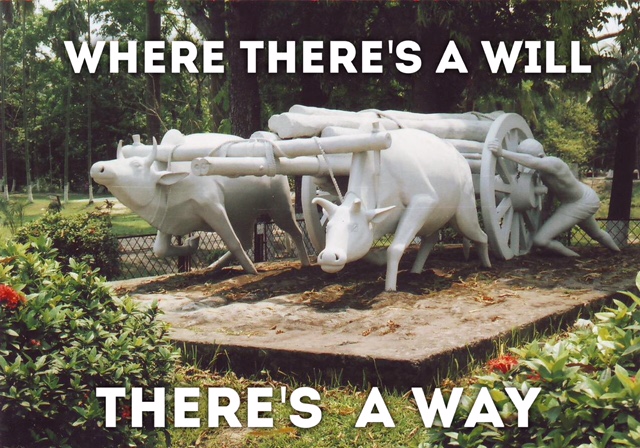We’ve all heard this phrase: where there’s a will, there’s a way. It’s typically said during difficult moments where success seems almost impossible; almost as if to say my determination will be enough to get through this trouble.
When we die, our troubles disappear for us…but not for those we love. Our loved ones inherit both the good and bad that accumulated during our lives. To make the life of your loved ones less troubling, perhaps you should think of this phrase a bit differently.
Where there’s a WILL, there’s a way.
A WILL is a legal document that transfers what you own to your beneficiaries upon your death. It also names an executor to carry out the terms of your WILL and a guardian for your minor children, if you have any. Your signature and those of witnesses make your WILL authentic. Witnesses don’t have to know what the WILL says, but they must watch you sign it and you must watch them witness it. Hand-written WILL s — called holographs — are legal in about half of the states, but most WILL s are typed and follow a standard format.
According to Legalzoom, it’s estimated that 55% of American adults don’t have a WILL or another estate plan in place. And that percentage is even worse among minorities – 68% for African-Americans and 74% of Hispanic-Americans.(1)
Without a WILL, you die intestate. The laws of your state then determine what happens to your estate and your minor children. This process, called administration, is governed by the probate court and is notoriously slow, often expensive, and subject to some surprising state laws. Do you really want a court deciding vital family matters such as how to divide your estate and custody of your children?
So, who needs a WILL?
We believe the short answer is everyone! However, it’s imperative to make a WILL as soon as you have any real assets, or get married, and certainly by the time you have children. Your WILL should contain several key points in order to be valid. The following list are some of the items that your WILL should address:
- Your name and address.
- A statement that you intend the document to serve as your WILL.
- The names of the people and organizations — your beneficiaries — who will share in your estate.
- The amounts of your estate to go to each beneficiary (usually in percentages rather than dollar amounts.)
- An executor to oversee the disposition of your estate and trustee(s) to manage any trust(s) you may establish.
- Alternates to provide both executor responsibilities and trustee(s).
- A guardian to take responsibility for your minor children and possibly a trustee to manage the children’s assets in cooperation with the guardian.
- Which assets should be used to pay estate taxes, probate fees and final expenses
The answers to these points should give your WILL the necessary resources to address what you wish to happen to your estate. We believe it’s very important to seek the professional skills and guidance of an estate planning attorney who can take your answers and draft a WILL that is completely tailored to you. Estate laws change over time and establishing a relationship with a local estate planning attorney can help you keep your legal documents up to date.
Check out: You don’t know what you don’t know until you know it.
We’re not attorneys, don’t give legal advice, and don’t receive any form of referral fee, but, we help our clients quarterback this discussion with a competent estate planning attorney. In fact, we’re often the first person family members call on to do a lot of the leg work during the time of a loved one’s unfortunate death. When a WILL isn’t present, or doesn’t accurately address your current assets and liabilities, it can create a lot of uncertainty, stress for family members, and costs at a time when they are mourning the loss of you. Get in touch with us today to start the process of gathering the information to create your WILL. Where there’s a WILL, there’s a way; you just need the determination and help to get it done.
1. http://info.legalzoom.com/statistics-last-wills-testaments-3947.html

